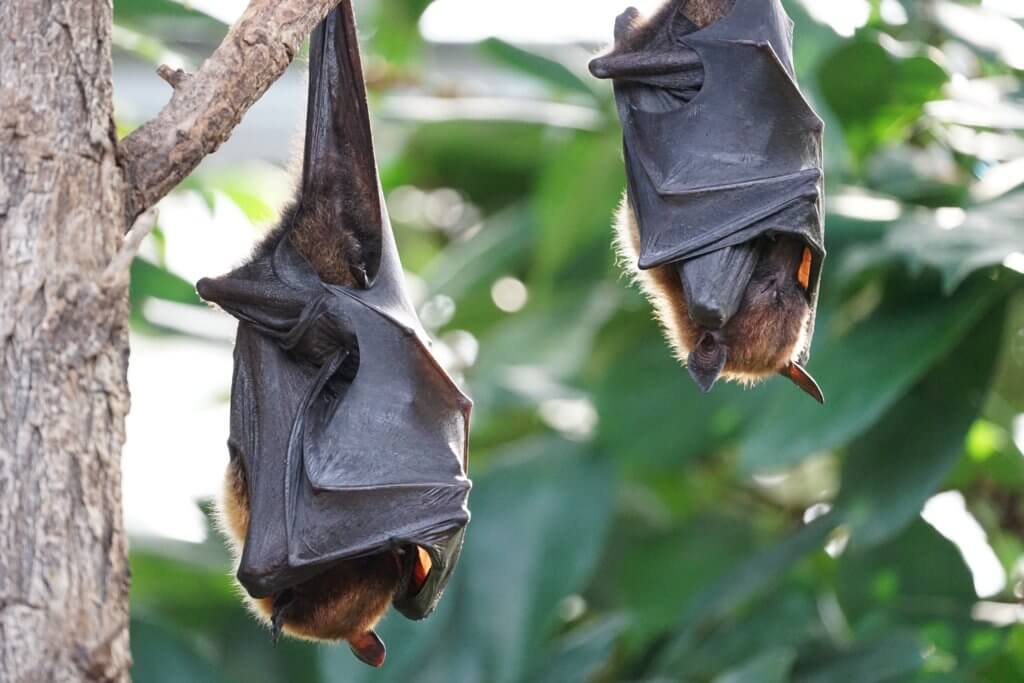Key takeaways
- Bats are reservoirs for many viruses that can infect other species, including people, and are the likely source of COVID-19 as well as other dangerous diseases like SARS. Leaving bats undisturbed can help prevent future spillover events.
- We need a global taboo and behavior change to stop hunting, eating, and trading bats, stay out of their caves, keep livestock away, and preserve their natural habitats. This is basic pandemic prevention.
- Allowing bats to survive provides ecosystem services like mosquito control and crop pollination worth billions of dollars. Respecting bats and their habitats is low-cost, high-reward pandemic prevention that we need.
ITHACA, N.Y. — In the wake of the COVID-19 pandemic, scientists are doing what they can to prevent future outbreaks. One recent study by Cornell University and the Wildlife Conservation Society highlights the importance of leaving bats undisturbed in their natural habitats. Bats have been identified as reservoirs for numerous viruses that can cross over to humans, including the SARS-CoV-2 virus responsible for COVID-19.
In a new paper published in The Lancet Planetary Health, researchers make the case that allowing bats to live undisturbed is a critical first step for avoiding another catastrophe on the scale of COVID-19 or SARS. By adopting a global taboo that respects bats and their habitats, scientists say we can significantly lower the risk of future zoonotic pandemics.

“In a globalized world with 8 billion people, we can no longer ignore our interconnectedness with the wildlife and ecosystems around us. We must change humanity’s relationship with nature if we want to prevent the next pandemic of zoonotic origin—and that can start with bats,” says Dr. Susan Lieberman, WCS’s Vice President for International Policy, in a media release.
Zoonotic spillover occurs when a pathogen jumps from animals to humans, leading to the emergence of infectious diseases. By interfering with bats’ habitats and behaviors, humans increase the chances of zoonotic spillover events. Activities such as hunting, consuming bats, culling them, or encroaching on their natural habitats disrupt their delicate ecosystem and facilitate the transmission of viruses to humans.
Bats, often misunderstood and feared, play a critical role in maintaining ecological balance. They are natural reservoirs for a wide range of viruses that can infect not only humans but also other species. Bats have been linked to the transmission of rabies, Marburg filoviruses, Hendra and Nipah paramyxoviruses, and coronaviruses such as MERS. Fruit bats are believed to be a source of Ebolaviruses.
While we may never fully uncover the exact origins of SARS-CoV-2, the broad outlines are clear, according to the study authors. Simply leaving bats alone could significantly reduce the risk of such pathogens making their way into human populations, the authors emphasize. The adage “an ounce of prevention is worth a pound of cure” rings true when it comes to pandemic prevention.

“Getting humanity to work collaboratively at a global scale underpins most of the existential challenges we face, from climate change and environmental pollution to biodiversity loss and ecosystem collapse—this at a time when earnest collaboration even at local scales often seems elusive,” notes Cornell Professor of Wildlife Health & Health Policy Steven A. Osofsky, lead author of the study. “However, if we can actually stop hunting, eating, and trading bats, stay out of their caves, keep livestock away from areas where bats are concentrated, and if we can stop deforesting, degrading (or even start restoring) their natural habitats, we can indisputably lower the chances of another pandemic.”
Preserving bats goes beyond pandemic prevention. Bats provide invaluable ecosystem services, including natural pest control by preying on mosquitos and other harmful insects. They also play a vital role in pollination, benefiting a wide array of important crops. By safeguarding bats, the researchers say we ensure the continuity of these ecosystem services and secure billions of dollars worth of benefits.
With multiple disease outbreaks already traced back to bat origin viruses in recent decades, experts say this “global taboo” on encroaching on bat habitats could steer humanity away from repeating recent history. If such policy changes can garner even a fraction of the support of efforts against climate change, substantial progress could be made to avoid catastrophes on the scale of COVID-19.
The paper is published in the journal The Lancet Planetary Health.
5 Reasons Bats Are Needed To Help Our Planet Thrive
- Insect control – Bats consume vast quantities of night-flying insects like mosquitoes and moths. This helps control insect populations and prevents crop losses.
- Pollination – Bats pollinate over 500 species of plants, including mangoes, bananas, guavas, and agave. This assists with food production.
- Seed dispersal – By carrying fruits to different areas and dispersing the seeds through their droppings, bats help regenerate rainforests and plants.
- Soil fertilization – Bat droppings called guano provide natural fertilizer high in nutrients like nitrogen which enrich soils.
- Ecosystem balance – As prey for owls, snakes and other predators, bats are an integral part of the food chain. Their extinction would upset ecosystems.

Read that Ozzie.
You to Alice Cooper. Leave those bats alone.
I wrote an essay saying essentially the same thing the day the pandemic hit. it is obvious that unless we stop deforestation we are going to keep seeing new viruses/pandemics. Only by keeping forests healthy can we keep people and the planet healthy